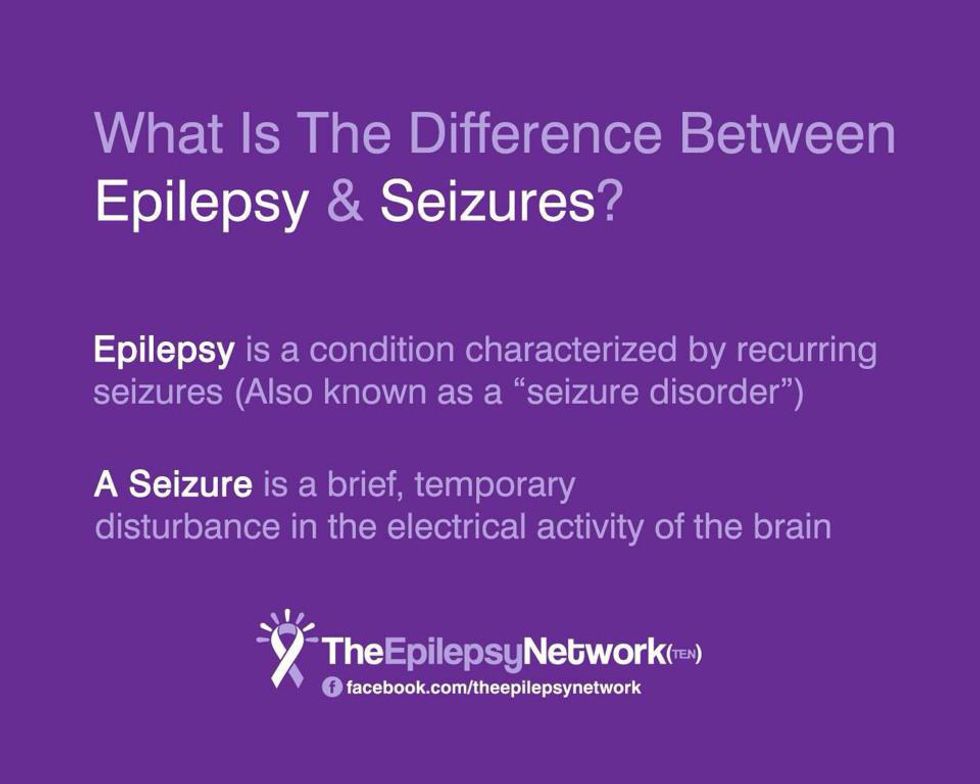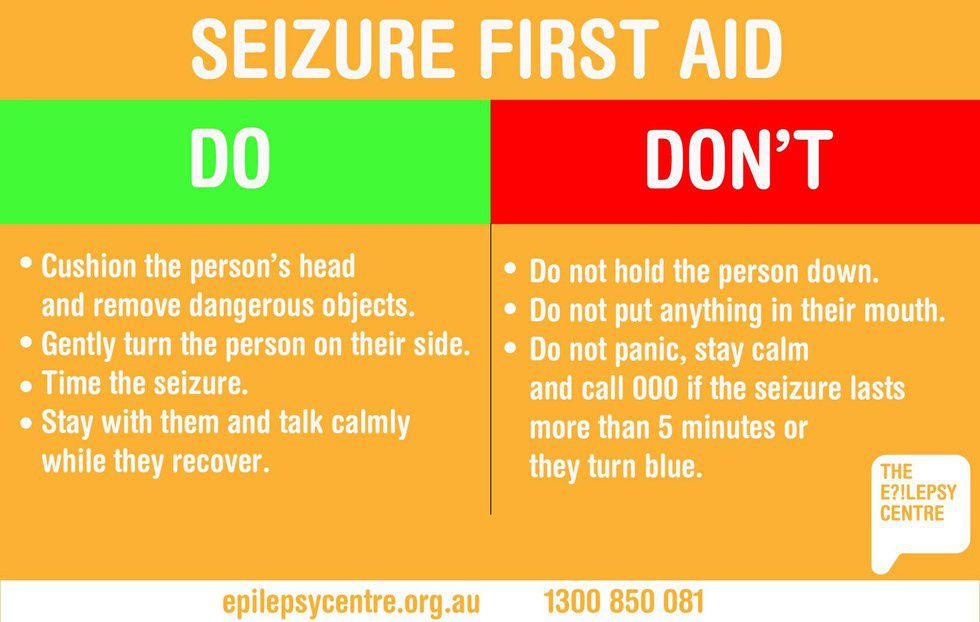When you hear the word "epilepsy" what do you think of? Strobe lights, somebody convulsing on the floor? Well these things do relate to epilepsy, but they aren't everything.
Epilepsy is having a seizure disorder and yes seizures can be caused by strobe lights, but that's not the only cause. When I was twelve years old I would have these "episodes" where I would stare off into space and have flashbacks of dreams I had as a child, followed by being really dizzy for a few hours. I went to three different neurologists to try to figure out what was happening and they all told me different things, "it's your diet", "it's a migraine", "don't worry you'll grow out of it." Well I didn't... these episodes continued throughout middle and high school until my freshman year of college when I started having full blown seizures. After this I visited a new neurologist who specializes in epilepsy and I was so shocked to know that I had epilepsy and that the episodes I had been dealing with for so long were a type of seizure called complex partial seizures. I always thought seizures meant you were on the floor shaking around and swinging your body and epilepsy meant that strobe lights made you have a seizure. Boy was I wrong.
I've only had a few grand mal seizures (which is probably what you picture in your head when you think of a seizure) and they were not fun. They made my younger brothers afraid of me, my mom more overprotective than she's ever been in my life, and they've made me feel so weak and incapable of being my normal, crazily energetic self. Seizures are something that everyone should be familiarized with in case of an emergency as well as for your own knowledge, so here are a few things to remember about seizures as well as what to do if you see someone having one.
1. Get them on their side and away from everything
When someone is having a seizure the need to be on their side so they don't choke on their saliva or anything else ( it is humanly impossible to choke on your own tongue). They also shouldn't be near anything big or heavy or anything else they could hurt themselves with when they are having a seizure.
2. Time the seizure
Just try to check a clock to see how long it lasts. If the seizure lasts more than five minutes that's when you should really be focused on getting help.
3. Assure them they will be okay
After a seizure, the person will be very, very confused and dizzy. They may not be able to talk or have any idea what just happened! Coming from experience my friends told me they had conversations with me that I have no recollection of at all and I've been dizzy up to two days after a seizure.
4. Give them a hug!
Seizures are scary for both the people witnessing it as well as the person who is having it! They won't have any idea what's going on but seizures do have a lasting impact on that person. Epilepsy means trying out medications until they find the right one, losing your license for at least six months (if you have your license), not being able to get certain medical/ dental procedures for approximately six months, and dealing with explaining to everyone in your life what has happened.
After having a seizure, the person will most likely be going to the hospital to make sure everything is okay, but unless any serious damage happened, they should be back soon. For a few days after having a seizure the person will feel very weak, tired, and could be in pain. My entire body would ache for days after having a seizure as well as having issues when I would talk (when having seizures it's common to bite down on your tongue with your teeth which can leave cuts) and I would get dizzy especially when walking up and down stairs. If you know someone who has epilepsy or had a recent seizure keep this in mind because you want your friend to know that you're there to help them in any way you can and that's always something that can make anyone smile :).






















